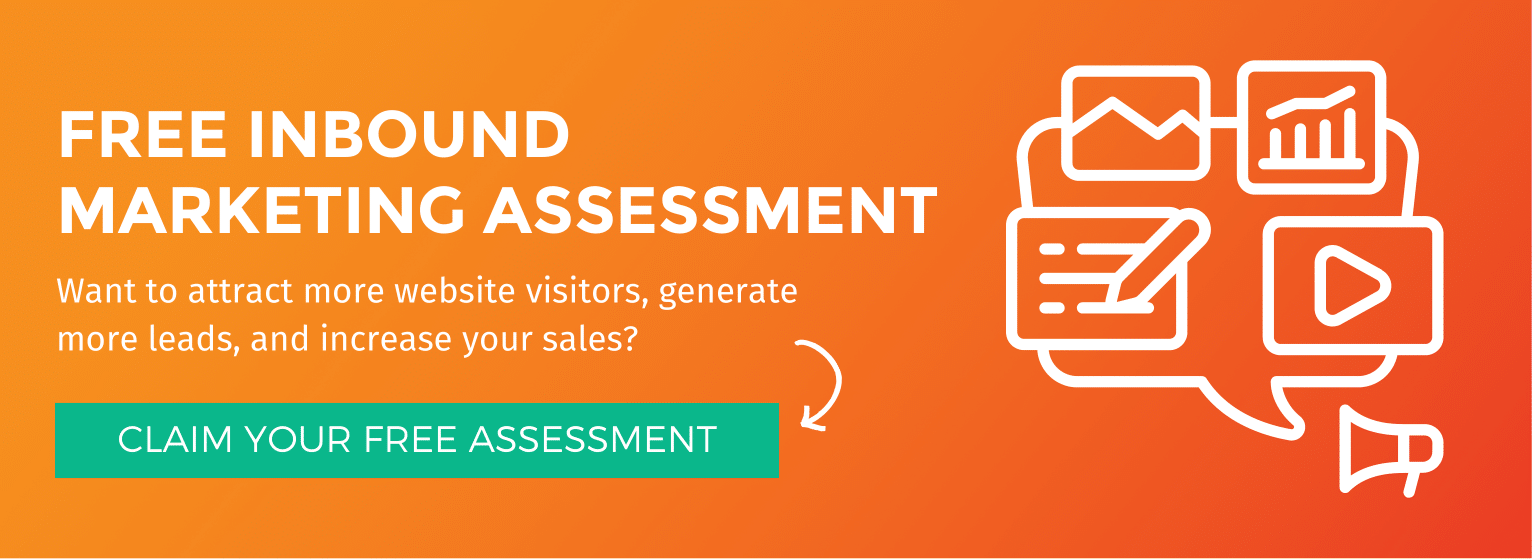Why Inbound Marketing Is Essential For Small Business Growth

Inbound marketing has become the leading digital growth strategy for businesses of all sizes, effectively supplanting outbound sales by using search marketing and content to encourage inbound sales enquiries from website visitors. And for small businesses especially, inbound marketing can play an essential role in facilitating ambitious growth plans. Why this is the case comes down to the challenges that many small businesses face when attempting to grow. Let’s look at this issue in some more detail.
Why Small Businesses Struggle To Grow
Growing and making sales is no walk in the park for any business, but small businesses in particular often face numerous challenges when it comes to achieving growth plans, for example:
- Poor Marketing Practices: Many small businesses struggle to effectively market their products and services, resulting in limited brand visibility and low professional credibility.
- Lack Of Sales Expertise: The success of a business relies heavily on its employees, especially so in a small team. Unfortunately for small businesses, the burden of making sales often falls on individuals who lack the necessary skills and training to deploy an effective business development strategy – e.g. non-specialist business owners or multitasking employees.
- Insufficient Cash Flow: Without adequate funding for sales and marketing initiatives, small businesses may face difficulties in investing in key areas such as advertising, software technology, talent acquisition, and agency partnerships that could facilitate growth with their resources available.
- Unrealistic Growth Expectations: Setting unrealistic growth goals or scaling too quickly can strain resources, put pressure on the business model, and negatively impact the overall performance of the business.
- Rigid Or Unresponsive Business Model: An inability to quickly expand operations, scale in response to demand, reach new markets, or adapt to changing customer requirements can all limit growth opportunities for SMEs.
The Problem With Traditional Sales And Marketing Strategies For SMEs
These inherent growth challenges are often made worse by the traditional sales and marketing strategies used by small businesses to acquire customers, which are often costly and ineffective for SMEs, and poorly calibrated to the digital economy. Old-school sales strategies, such as telemarketing, field sales, and business networking, for example, often require significant upfront investments of money and time without providing a guaranteed return. Print advertisements, cold calling, and direct mail campaigns can also drain limited sales budgets, leaving small businesses struggling to see tangible results.
What Is Inbound Marketing?
Inbound marketing turns traditional sales on its head by focusing on attracting and engaging potential customers by delivering valuable content and experiences – not by directly promoting a business’s products and services. An inbound strategy involves creating relevant and informative digital content assets (e.g. blog articles, downloadable eBooks, and personalised web content), optimising your business website for search engine visibility, expanding your reach on social media platforms (e.g. LinkedIn) and nurturing leads through personalised communication.
Rather than interrupting potential customers with intrusive cold phone calls or adverts – which nobody appreciates, let’s be entirely honest – inbound marketing aims to cultivate trust by providing value and initiating a genuine two-way conversation. By aligning your content with the interests and pain points of your target audience, you can attract more qualified and promising leads, and secure more sales based on stronger and longer-lasting business relationships.
Why Inbound Marketing Is The Perfect Growth Strategy For Cash-Strapped SMEs
For small businesses with limited resources, inbound marketing offers several key benefits over competing sales strategies:
1. Cost-Effectiveness
Inbound marketing strategies have a relatively low entry cost, with tactics such as digital content creation, search engine optimisation, and social media engagement accessible at a fraction of the cost of traditional marketing methods.
2. Targeted Reach
By focusing on creating content for a tightly defined ideal customer base or buyer persona, inbound marketing allows small businesses to focus on the qualified leads who are most likely to convert, thus shortening the sales cycle and lowering acquisition costs.
3. Develops Brand Authority
Inbound marketing is the fastest and most effective way for small businesses to develop their brand authority, by positioning themselves as industry experts through publishing informative and valuable content that answers searchers’ questions.
4. Greater ROI
With the ability to track and measure the performance of inbound marketing campaigns on every channel and platform used, small businesses are better placed to allocate resources in the most effective way and make intelligent decisions to optimise their returns from marketing and sales.
5. Long-Term Results
Inbound marketing creates permanent digital assets that deliver cumulative results over time. Once published, a good article can continue to draw in leads for years to come, and long term, an authoritative and regularly updated website will help you develop profitable relationships with your customers, and nurture prospects throughout their buyer journey, with less direct input and pressure required on your sales team.
Talk To JDR Group About Your Growth Objectives
A Hubspot survey of marketing professionals published in May 2023 revealed that 78% of respondents believed that marketing has changed more in the past three years than in the past fifty years, indicating a profound shift in customer preferences and attitudes.
Contact JDR Group today to discuss your SME growth objectives and discover how a tailored inbound marketing strategy can help you keep up with the change and transform the fortunes of your small business.
Image Source: Canva



